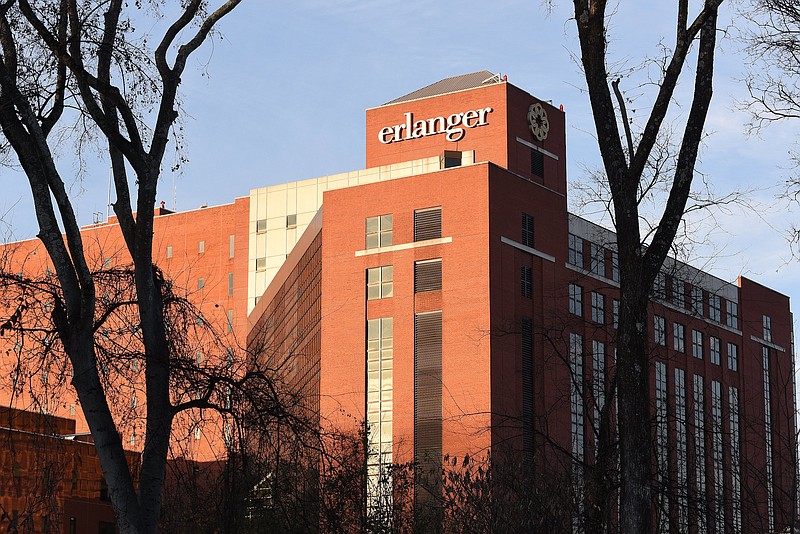Just as the Hamilton County Commission had done with some $69 million a few days earlier, the Chattanooga City Council approved how to spend $30 million in federal American Rescue Plan (ARP) funds last week.
One difference in the outlays of the massive amounts of money, which were ostensibly marked by supportive members of Congress for COVID-19 relief, were the local processes by which use of the funds was determined.
Where most of the county money was directed by the mayor, plus individual amounts by the nine county commissioners, the distribution of the city money was determined with a measure of community input.
Our feeling is that where there is more sunshine the public is better served. In other words, if the public has input into area projects where taxpayer money is involved in one way or another, they will be better informed and feel they have at least some buy-in.
In several cases over the past several months, that has not been the case. To cite just three, we think of the county ARP money, the governing change of Erlanger Health System and the foundry/stadium project.
' As we wrote last week, we don't quibble with the large majority of the funds Hamilton County Mayor Jim Coppinger and the nine commissioners directed. A large swath of the funds will go to to Hamilton County Water and Wastewater Treatment Authority (WWTA), which has a partnership with the city of Chattanooga. Chattanooga has a current consent decree with the federal Environmental Protection Agency, and the WWTA has a similar decree pending.
But the public's only chance to say anything about the spending amounts would have come in commission meetings if individuals happened to see the posted agendas about the amounts.
The city, on the other hand, along with the Chattanooga Area Chamber of Commerce and the Urban League, appointed 12 people to a panel called the Equitable Recovery Commission to hone the focus of the allocation plan and recommend amounts to spend in certain categories. The meetings began in January to determine the guidance.
Importantly, the members of the commission did not review individual projects, so when the Kingship Chess Academy received $150,000 and the Pursuit of Happiness $500,000, the only public input was that a percentage of the $30 million would be spent in the category of public safety and youth engagement.
We would note that most of the county money will go to tangible projects - water remediation, ambulances, schools, fire departments, etc. - while most of the city money will go to programs and processes, where what actually happens to the money is much harder to track and outcomes much harder to assess.
' When Erlanger Health System board members announced in February they would seek a nonprofit governance model, they were quick to say the public would be able to weigh in on what they were planning. The public meetings, according to the hospital officials who spoke to the newspaper at the time, would be generated by the county mayor's office, but the officials understood there were individuals "who were going to want to have their say."
More than five months later, no public meetings have been held. And in that time, Tennessee lawmakers have given final approval to a bill allowing the quasi-government-owned hospital system to pursue a plan to convert to a private, nonprofit corporation, the county commission ratified the legislative action as is required by state law, and the county commission authorized Coppinger to execute an agreement between the local legislative delegation and Erlanger that formalizes the county's commitment to keep the legislative delegation informed during the transition process.
Sometime in August, the commission will be expected to vote on the charter, bylaws and covenants developed by Erlanger and the attorneys hired for the process. What is in that charter, those bylaws and those covenants might be most critical for the public to know, but we have heard of no public meetings scheduled.
Once again, the only time for the public to weigh in may be if they notice that approval of Erlanger documents is posted on a commission agenda.
' Plenty of ink already has been spilled about a new Chattanooga Lookouts stadium proposed for the former foundry sites off South Broad Street, and we believe the live-work-play environment that supporters promise eventually will come to pass. But we continue to wish there was more public input about the final plans, which seem to change with each new pronouncement.
For instance, the tax district approved by the county Industrial Development Board last week grew from the 120 acres of foundry property to 450 acres, which include adjacent parts of Alton Park. The larger amount of land will allow the city and county to capture a portion of even more tax revenue generated by new development in the area, though, importantly, not from existing property taxes.
Did proponents realize the 120 acres wouldn't generate enough revenue to finance the stadium? That's just one of many questions the average taxpayer - who, yes, may have gone to Southside planning meetings in the 2010s - wants to know about current plans.
Once again we urge: more sunshine, a happier public.
